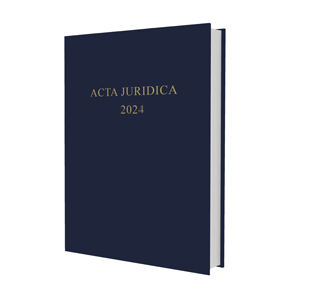The Constitutional Court: Negotiating between constitutionalism and political power

The Constitutional Court: Negotiating between constitutionalism and political power
Authors Dennis Davis & Hugh Corder
ISSN: 1996-2088
Affiliations: BCom LLB (Cape Town) MPhil (Cantab); Judge Emeritus of the High Court of South Africa; Judge President Emeritus of the Competition Appeal Court of South Africa; Honorary Professor of Law, University of Cape Town and University of the Western Cape; BCom LLB (Cape Town) LLB (Cantab) D Phil (Oxon); Professor Emeritus of Public Law, University of Cape Town
Source: Acta Juridica, 2024, p. 183-221
https://doi.org/10.47348/ACTA/2024/a7
Abstract
The constitutional democratic order has been in place in South Africa for 30 years. During this period the Constitutional Court has established both its authority at the apex of the administration of justice and its legitimacy as the final arbiter of the lawfulness of the exercise of public power in all its manifestations. During its life, the Constitutional Court appears to have been guided in its approach to litigation before it by diverse concerns, often linked to strong personalities within its ranks and the prevailing socio-political context. It is difficult, however, to divine an overarching theory of adjudication to animate its jurisprudence. Such guidance can be discerned by attempts to ‘periodise’ the output of the Constitutional Court, as was attempted by Issacharoff in 2009. The courts have also been criticised and attacked in the public domain by party politicians who seek to divert attention from their unconstitutional conduct to scapegoat the judiciary; this is often accompanied by scandalous assaults on the constitutional order itself. Absent a unifying theory of adjudication in line with the transformative constitutional values at its core, we argue in this article that the Constitutional Court appears vulnerable to such unscrupulous undermining and is insufficiently able to defend itself and so retain public confidence in its stature, independence and fierce impartiality. Through an analysis of key judgments over the past fifteen years in particular, we seek to identify and propose the key elements of such a foundational theory of adjudication, applicable also in the vital sphere of extending constitutional prescripts into the private sphere, as contemplated by the Constitution.
